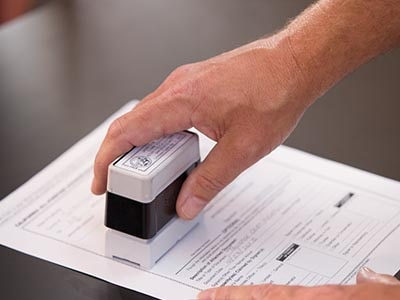Proficient Conveyancer: Assisting In Smooth Real Estate Purchases
Proficient Conveyancer: Assisting In Smooth Real Estate Purchases
Blog Article
Debunking Notarial Job: Simplifying the Role and Value of Notaries
Their function, usually shrouded in mystery for many, brings significant weight in making sure the legitimacy and honesty of vital documents. By deciphering the intricacies bordering notarial methods and losing light on the importance of their acts, a more clear understanding arises of the essential role notaries play in supporting the fabric of lawful and contractual arrangements.
The Background of Notarial Job
The background of notarial work dates back to old human beings, where scribes played a crucial role in taping crucial details and confirming papers. This led to the growth of notaries, individuals appointed by the state to act as unbiased witnesses in lawful matters.
Throughout the Middle Ages, notaries acquired prominence in Europe, with their functions broadening to include drafting legal papers, certifying signatures, and preserving documents. The rise of international trade additionally stressed the significance of notarial job in confirming contracts and arrangements across borders.
In the modern-day age, notaries continue to play an important duty in legal and service transactions by validating identifications, verifying the credibility of papers, and protecting against scams. Their duty in accrediting the credibility of contracts adds a layer of security and depend the ever-evolving landscape of business and legislation.

Responsibilities and Responsibilities of Notaries
The historic advancement of notarial work from ancient people to the contemporary age has formed the distinctive duties and responsibilities that notaries maintain in legal and service transactions today. Notaries play a vital duty in validating the authenticity of files and the identification of signatories. One of their key responsibilities is to witness the signing of essential files, such as contracts, wills, and deeds, to guarantee that all events are participating in arrangements intentionally and willingly. Notaries likewise validate that signatories are of sound mind and not under pressure or threat.
They accredit duplicates of initial records, providing guarantee to institutions that the copies are true reproductions of the originals. Overall, the tasks and responsibilities of notaries are crucial in guarding the integrity and legitimacy of various papers and purchases - Notary.
Notarial Certificates and Signatures
Exhibiting precise interest to detail, notarial certificates and trademarks act as essential parts in validating the credibility of lawful papers. Notarial certifications commonly consist of important details such as the day of registration, the Home Page names of the signatures, a description of the document, and the notary's main seal. These certifications provide a clear record of the notarial act, guaranteeing that the paper can be quickly determined and mapped back to the notary that managed the procedure.
Signatures play a crucial role in notarial work, as they indicate the arrangement and permission of the parties entailed. Notaries meticulously witness the signing of records to confirm the identity of the notaries and verify that they are signing of their very own free choice. By affixing their main seal and trademark to the record, notaries accredit that the required procedures have actually been complied with and that the paper is enforceable and valid.
Essentially, notarial certificates and signatures are the characteristic of credibility in lawful transactions, giving assurance to all parties involved that the papers are legit and binding.
Importance of Notarial Acts

Registration Process Discussed
Describing the notarization procedure supplies clarity on the necessary actions associated with verifying lawful papers. The registration process commonly starts with the specific presenting the paper to a notary public. The notary after that confirms the signer's identity with appropriate recognition methods. Once the identification is confirmed, the notary makes certain that the private signing the document does so voluntarily and without any type of threat.

Conclusion

Notarial certificates generally include important info such as the day of notarization, the names of the signatures, a description of the file, and the notary's official seal. These certifications supply a clear record of the notarial act, ensuring that the record can be quickly identified and traced back to the notary that oversaw the process.
By attaching their main seal and signature to the document, notaries accredit that the necessary procedures have been followed and that the file is legitimate and enforceable.
By validating the identity of the signatures, confirming their determination to get in right into the arrangement, and accrediting the day and area of the finalizing, notaries play a vital role in upholding the validity of legal papers.After the document is signed, the notary will affix their main seal or stamp onto the file.
Report this page